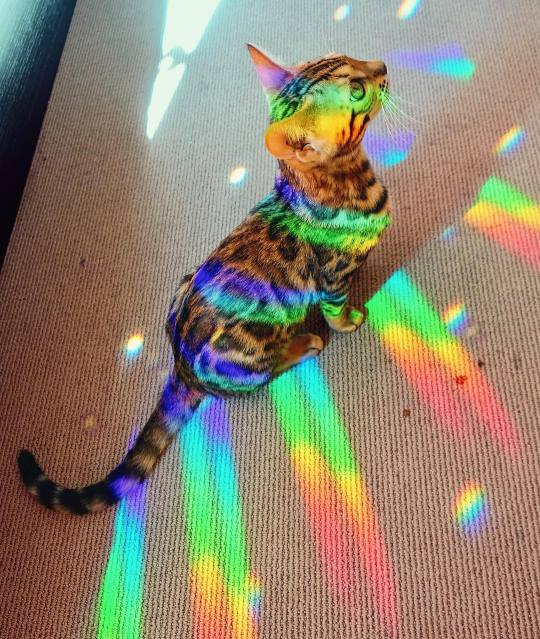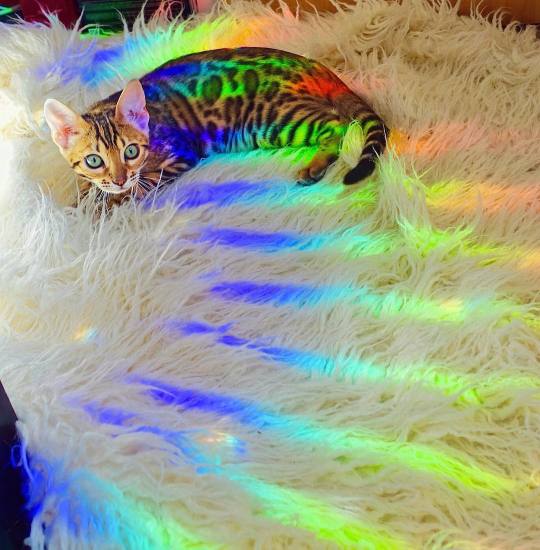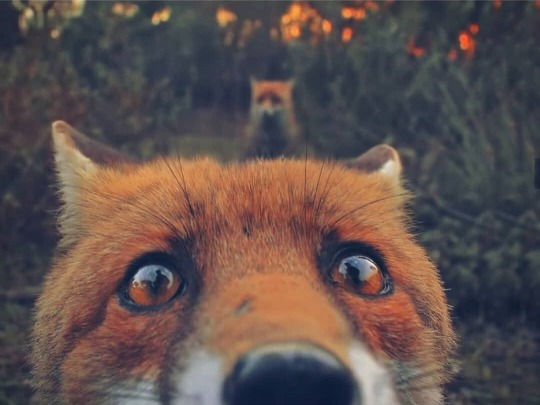Text
Fuck Perfect
I try to avoid swearing in these things, but this is important.
Perfect isn’t just the enemy of done. Perfect is the enemy.
Nothing charming is perfect. We are charmed by little dogs that act big; by scruffy suitors that act gorgeous; by gorgeous suitors that act scruffy; by contradictions, and earnest efforts, and close calls.
To appease the pedants, nothing is perfect; yet still we imagine things perfect, and we claim to prefer things closer to perfection, and we strive for perfection.
Perfection is alien because it’s impossible. We cannot interact with the perfect because it is so beyond us, we incredibly imperfect things. If you ever actually found the literal perfect mate, you’d never mate with them; you wouldn’t even talk to them, how could you?
Perfection is boring because it’s seamless. In a perfect world, nothing ever goes awry, everything always goes as planned, and there are no surprises.
Superman is a very hard character to tell a story around, because stories are celebrations of imperfection. A good Superman story has to be about the ways in which Superman isn’t perfect, the imperfections of the people in his life, or the way his perfection makes him incompatible with humanity. See Dr. Manhattan from the Watchmen.
Why is the underdog a thing? Why do people root for the unfavored? Because we’re all the underdog, and seeing someone like us come out on top gives us hope that we will too. Because victory means nothing to those who don’t strive; it is the struggling, and the sweating, and the questioning, and the trying that creates meaning.
In fact, it doesn’t really matter whether you win or lose. It’s not the destination but the journey. It is the caring, and the trying, and the failing, and the trying again.
Acting is reacting because plot without emotion is mathematical. (Math is, btw, one of the most perfect things to exist, and consider how many people despise it for that.) We want to see people hurt, healing, afraid, soothed, angry, reconciled: affected. Nothing perfect can be affected. Who cares about anything that can’t be affected?
What makes improv so great is that we are trying to do this impossible thing, and kind of succeeding--which is exciting and impressive--but also failing in so many ways, big and small, over and over. And then instead of apologizing, we celebrate that failure, using it to build something strange and wonderful that no one could have foreseen: Creating our success from our failure. The only thing more terrifying than the worst improvisation is the perfect improvisation.
If you’re like me, you tense up whenever people talk about purity around you. Purity is a toxic idea used to marginalize people, and then to divide marginalized groups, and control populations. “If you do X you’re impure. If you don’t do Y, you’re impure. If you do it Z way, you’re impure.” Certainly, there are kinder, holier, more moral choices than others, but the concept of purity is poison. No one’s perfect, nothing is totally pure, nothing is totally impure. We all have value because we exist, because of the love we can share, and because of the good we can do.
Think about this, if there is a God and if they are omnipotent, they could have created a perfect world. This world is far from perfect. It’s ugly. And it’s beautiful. It’s complicated. And it’s so so simple. It’s imperfect, and thank God for that.
10 notes
·
View notes
Text
From the day you’re born ‘till the day you die, you’re trying to figure out what’s really going on, when it’s right in front of you. There’s no secret message, no hidden meaning. Life is life. So live.
6 notes
·
View notes
Text
It’s in the Leaves
(E = he or she)
It greatly saddens me
to watch the philosopher.
So oft does e query
but not wait for the answer.
If e would just look closely
the answer e’d discover.
Yet e just sulks morosely
like a heart-broken lover.
You can hear it in the wind.
You can smell it in a flame.
You can feel it in a rock.
You can see it in the leaves.
But the answer falls on dumb ears.
4 notes
·
View notes
Text
Patience in Pastry
The only thing that keeps my sanity
out of the hoary depths
Is the persistent promise of
love and even… sex.
There is a woman whom I love
more than love can sustain,
But I do not know what she looks like,
and cannot call her name.
Every night I see her face
as clear as love itself,
The sparkling, soothing voice I hear
alone improves my health.
I open up my mouth to speak;
to call her to my side,
Emitting endless emptiness;
my voice, my mind defied.
Once more she walks out of my life
and so, forlorn, I wake.
And go down to the kitchen
for another piece of cake.
0 notes
Text

One of my favourite commission pieces I've done this year!
Loved the idea of Data from Star Trek surrounded by Spot and her kittens 🐈
34K notes
·
View notes
Text
Corporations Are Rogue AI
Artificial Intelligences are neural networks. Just like human brains, they are bundles of nodes connected by proximity, each storing a piece of information that acts like a logic gate as analog signals pass through them in series.
Every system is such an intelligence. A Rube Goldberg machine is an intelligence (if a very simple one). A plinko machine is an intelligence. Anything that can transform an input into an output is an intelligence, but we’re really only interested in those that that take multiple inputs and produce multiple outputs in at least partially predictable ways:
The human body is such a system, even ignoring the brain. A variety of sensory inputs (including conscious and unconscious commands from the brain) map to a variety of physiological and biomechanical responses. The same is true of each individual cell in our bodies. And so also the molecules that make each individual component of a cell.
In the same way, ecosystems are systems of intelligence. Any group of intelligences comprise another intelligence. A family, an office meeting, a committee, a community; human civilization is itself an intelligence. A corporation is an intelligence.
Money comes in (via product sales or client contracts), work is done, and services or products go out. From within, we see individuals making choices based on what they’re asked to do, what they’re given to do it, how their team works, etc. The same is true of neurons in the brain and nodes in neural network.
If so many systems are intelligences, why am I focused on corporations? Because we (the human civilization intelligence) are worried about the Singularity (AI surpassing humans and taking over the world) as if the future is unknowable. But it’s not. We have a model for serious AI in corporations (and governments). And that model isn’t great.
In AI, training your neural network is kind of the most important step in its creation. What you tell it you want it to do has a massive impact on the result (as does the sample data you feed it to figure out how it’ll do that): The classic sci-fi horror story is the powerful AI we direct to do something that sounds beneficent like “save Humanity” which then concludes that the greatest threat to Humanity is itself, and so imprisons or disables us in order to preserve our lives.
This misinterpretation of goals isn’t theoretical. We see it all the time in corporations. Corporations are tasked with generating profit and regularly do objectively evil things in order to accomplish that goal. They can be so single-minded in pursuit of this goal, that they occasionally consume themselves in the process, selling off the very assets and human resources they need to continue to exist and turn profit.
We see the same thing in games. Even though players all play games for fun, if the strongest path toward victory in a game is unfun, most of them will do that thing anyhow. The group won’t have fun, and they’ll stop playing that game. It is critical to design your games (and systems, and AIs) so that both the goal and the means that will be found to best achieve it actually serve the purpose you intend.
Late-Stage Capitalism is demonstrating very clearly that the goal of profit combined with the monopolistic and anti-populist methods that corporations use are deeply flawed and unhealthy for the larger human system.
We need to change the goals and/or effective methods in order to prevent this cancer (cancer being a system and an intelligence of its own) from destroying Humanity.
9 notes
·
View notes
Text
Improv is Transgressive
Improv tells adults it’s okay to play.
It’s okay to be other people in other situations. Other genders, cultures, and abilities.
It’s okay to try new things.
It’s okay to fail. Sometimes it’s better.
It’s okay to act out in public.
It’s okay to be loud.
It’s okay to voice your inner demons.
Care and consent always matter.
Diversity is both necessary and magical.
Weird is wonderful.
Truth is Comedy.
Reality is what we agree it is.
We’ll be okay as long as we support each other.
1 note
·
View note
Text
Cobra Kai is a stellar way to do nostalgic reboots.
The Short:
Don't tell the same story again; tell a similar story with more nuance.
The Long:
+ Cobra Kai brings back all the main characters it can, which is great because it means we're building on existing familiarity. + It flips the primary perspective from the hero of the original story to the villain. A new lens is ideal for revisiting stories!
+ Cobra Kai adds nuance. First, we learn details about what happened back in Karate Kid, deepening our appreciation of the original. Second, the storytelling is more mature in the sense that characters and situations are more complex; nothing is black and white.
That allows the story to grow up with its audience. The kids and teens who loved the original are adults now and wouldn't be satisfied with a kids movie today. + Same premise. The audience loved the first story and they want more along the same lines. If you change the premise, you'll lose much of your audience. This is the mistake the Matrix sequels made; they shifted the story focus from action adventure to a war film, and that's not what their fans signed on for. This is how The Force Awakens succeeded with so many fans: Same outline, new details.

± Cobra Kai makes references so direct as to incorporate actual footage from the original. Sometimes this is poignant, and sometimes it shows the Karate Kid's age. They do it often enough, that it feels like they're trying to prove everything their incorporating is canon.
- Cobra Kai feels overly beholden to its source material. I have the impression—and this is mighty subjective—that the writer's could have spent more time making this new thing if they'd spent a bit less time tying every last thing back to the original.
+ OTOH, the writers were not shy about evolving characters in drastic ways, and taking advantage of the 34 year gap between tales. They also left them unevolved in drastic ways, which is always a pleasure to see.
This isn't the only way to do a nostalgic reboot. I think the first live action Transformers film was quite successful, in another way. The important thing is to never re-film the same script. That way lies folly.
Not specific to reboots, but there's another facet of Cobra Kai that I adore and have to mention: + Everything ties back together through relationships. This is a technique you can see quietly powering many indie RPGs, and with good reason:
• When a character has to make a hard choice, it's much more dramatic if that choice is either informed by their relationship to another character, or affects that relationship. Obviously, a stories better with more, juicy, hard choices.
• When a character messes up, it's more dramatic if that mistake was caused by or affects either a relationship, or that character's core goal or identity. Obviously, stories are better when their characters have clear goals and identities, and when they mess up.
The last distinctive feature I see in Cobra Kai: It's about rivalry, and that shows in the narrative structure. Each character is juxtaposed against another with whom they will inevitably face off, either in a tournament or in life. These shift, which is great.
0 notes
Text
What makes Schitt's Creek so good?
Story is best when your audience cares.
The series introduces a family who has just fallen from grace. All we know about them is they were rich and now they're poor. They're disconnected from reality and mistreat their new neighbors.
A few of the townsfolk are kind to them, but many are disdainful.
Without main characters we can really identify with, what keeps us watching at this point?
1. Schadenfreude—Whether you hate the rich because of the harm they cause, or envy their life of luxury, watching the wealthy be knocked down to our level is satisfying.
2. Novel Characters—The Roses and the townsfolk are All unique and fascinating. We want to see more of them.
3. There is one identifiable protagonist: Johnny Rose, the father who—despite suffering a betrayal that costs him his empire—loves his family and endeavors to keep them together.
And the show’s just very well written and funny. So we keep watching.
And we’re rewarded richly, with character growth. Getting to watch our fun jerks learn and adapt is powerful. They begin to value their neighbors and form bonds, and that’s magical. They slowly develop decency and compassion, and that’s healing.
Importantly, they never stop being their quirky selves. They continue to underestimate Schitt’s Creek, to be fish out of water, and to make cringe-worthy gaffs. But they begin to do with the townsfolk more than at them. Each character’s game evolves as other characters learn to sidestep the fallout, to prevent the worst case, to help each other recover. That’s both entertaining and enriching.
By the last season or two, we love our protagonists and most of the supporting cast, and we’re rewarded for our faithful attendance by seeing them get the happy endings they deserve. (And one they don’t.)
In summary, you need your audience invested one way or another at all times, there are multiple ways to do that, and it’s okay to shift between them as your story unfolds.
4 notes
·
View notes
Text
Another Way Dice Fail RPGs
The prototypical RPG mechanism is the contest and the first example given is arm wrestling.
If my character has a strength of 13 and yours has a 14, yours should win, right? Your character is objectively stronger than mine, so obviously when we arm wrestle, yours wins.
Except that’s not how it works. If there are 5000 RPGs with stats and dice, I would be shocked if The Internet can name 2 where that’s how it works. The rest all say “Whoa whoa whoa, sure the character with a higher strength has an advantage, and should win more on average, but there are so many other factors; and anything can happen; and uncertainty is more fun; and if the outcome is predetermined, why bother!”
None of these arguments are invalid, which is a big part of why this design choice hasn’t been questioned much. But what are the arguments against?
How often are these two characters going to arm wrestle? If the answer is usually once, having them each reveal their score and naming the higher the victor is a fast and intuitive resolution in the game, and serves the story well because the audience learns which of these characters was stronger.
If there are factors affecting the outcome of this match, what are they? If I’m finding an extra reserve of strength because your father beat my father in arm wrestling, the audience wants to know that. If my partner is distracting you, we want to see how. If you’re fatigued, or de-motivated, or whatever, we want to feel that. Better than “roll d20 +STR” and abstract those factors, would be “choose motivations and event cards face down and simultaneously reveal to see whose final strength is higher.”
D20 + STR, btw, is a joke. Even in the theoretical probabilistic mean, your character only has a 5% advantage over my character: In 40 million contests, yours will win 21 and mine will win 19. Maybe it’s not obvious that’s not enough of a difference: Suppose you have an 18 strength, the maximum possible, and I have an 11, the average: You’ll win 31 and I’ll win 9. I don’t know about you, but I will never ever win a wrestling match against Arnold Schwarzenegger.

And that’s assuming every point of strength matters. There are too many games with calculated secondary stats where only every 2 or 5 points of strength actually affect contests. Collapsing modifiers is a good way to differentiate characters when the randomizer is throttled (Apocalypse World’s 2d6+stat, for instance) but actively bad in a d20 system (or percentile, heaven forbid).
What about criticals? Should a 1 mean auto-fail and a max roll mean auto-success, even in the worst matchups? Yeah, sure. I agree that never having 100% certainty in a contest is better for suspense, drama, story, and fun. But you know what’s more fun than my feeble character going against your masterful character and winning because my die landed on the 20 face? My feeble character scrabbling and scheming in story-enriching ways that I as a player orchestrated.
Our cause and effect reversed. Rather than roll a die representing abstract factors to see how a thing goes, make a thing go and notice whether that was a really good (like a 20), really bad (like a 1) or something in between. Maybe you make that thing go by deciding what factors are in play, or maybe its determined by the game state (including your characters stats/attributes), or maybe you just choose.
What about multiple contests in sequence? AKA combat. It’s not hard to argue that even if your character is a slightly better sword fighter, even if your character is ultimately going to win the fight (barring external or extraordinary factors), the audience still wants to see an arc with multiple blows traded, with risks taken, costs paid, and surprises launched. And I don’t disagree.
But in the same way I think we’ve got our cause and effect reversed in individual contests, I think there are better ways to approach combat than a series of random events. Particularly since 3-6 rolls does not begin to approach the probabilistic norm we like to imagine it does. I’ve alluded to one such system that I’m sure would be fun in combat above, so here’s another:
Suppose that each character is a bundle of feelings. (They are, if your story’s any good, but suppose your game system mechanizes that.) My character is a monk: focused, optimistic, dedicated, obligated, and trained. Your character is swashbuckler: intuitive, amused, vain, unpredictable, and talented. Each round, we simultaneously choose which feeling our character is feeling and reveal them. The resolution is us as players figuring out what’s happening in this moment that’s causing our characters to feel this way now, and how that interaction plays out where we are.
If I played optimistic and you played unpredictable, maybe I see you’ve forgotten to tie you shoes and go to trip you, but you swing from a chandelier, bowling me over. Of if you play unpredictable and I play optimistic, you hop on a table for no good reason and I see it’ll be easy to defeat such a sloppy opponent, tipping you off. Hmm, looks like order matters, or else some kind of priority; If the goal is to have a back-and-forth, it might literally be: this turn figure out how our cards describe me pulling, next turn, you.

Point is: Question precedent.
0 notes
Text
Character Culture
If any character has a race/culture, every character does.* There is NO DEFAULT. Even if two characters are white, or black, they're not from the same place, with different accents/dialects/languages, folk stories, and customs.
Give your character ONE aspect that is common or valued among your character's culture. This is how the audience sees your character's culture. Celebrate it. More than one aspect threatens stereotypicality.
Give your character one aspect that is uncommon/antithetical among your character's culture. This is how your character stands out when surrounded by their childhood figures. It also reminds us that their people are not identical and their culture is rich in breadth.
*In a game where everyone comes from the same culture, think about your characters' families. Even if we're all German settlers in 1846 Fredericksburg TX, my family might be poorest, yours might be toy makers, his might be criminal, hers might be religious. #FamilyMatters
2 notes
·
View notes
Photo
This site has a bunch of abstract looping animations I think are neat and calming, but this one’s doing a magic trick:
At least the first time you watch it, you’re like “whoa how did we get back up here.” If you keep your focus on the middle, you can see the half lines fade away, and thus how we get back to the start state, but the falling animation is engaging and normally moves your focus outward so that you don’t see that fade. Which is totally the basis of illusions.

2K notes
·
View notes










